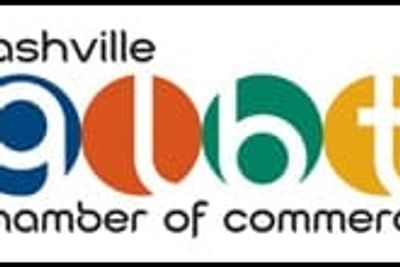In a recession, everybody hurts.
Nowhere is that more true than in the business community, where a slow economy means poor ticket sales, empty tables, unsold merchandise, employee cutbacks and layoffs. And while national economists and pundits debate whether or not the current recession is over, the local GLBT business community is looking ahead, and putting some new, hard-earned lessons into place in anticipation of a brighter economic future.
“We haven’t noticed a lot of businesses closing, and many that did were sole proprietors,” said John Wade, president and board chair of the Nashville GLBT Chamber of Commerce. “Many other one-person operations stayed around by the owner picking up a second job and supplementing their income, and doing what they needed to do to stay open. It’s been very encouraging to us that people haven’t just thrown up their hands and said ‘I’m done, I’m out, good-bye.’”
Locally, many community businesses large and small not only have weathered the recession, they actually got started in the midst of it. And while they had to make some early-days decisions about staff levels and such, most were able to do so and stay float.
“Again, we’re encouraged to see people reducing employees’ hours rather than laying people off,” Wade said. “And they’re staying open longer, or having different hours, trying new ways to bring in business.”
A down economy may not be the best time to plow capital into an existing venture, but the argument can be made that it’s not the worst time to do so, either. Consider Red, the restaurant attached to Tribe Nashville. After attempting a couple of different eatery concepts, the owners decided it was time to move in a different direction last year.
“We invested an awful lot of money,” said David Taylor, co-owner. “We put whatever profit we made from Tribe into that business, which was becoming Suzy Wong’s House of Yum, because we believed in its long-term prospects.”
Taylor says that the venue had been popular with the community, and the goal was to keep it going not only as a gathering place, but also as one that could become self-sustaining within a reasonable period of time. So Red was officially out in August 2009, with Suzy Wong’s opening its doors only a month later — happily, to booming business.
“It’s hard to invest at this level, especially in a down year, but the reception was wonderful and business has been steadily growing,” Taylor said. “But we did it differently than before: We came in with a business partner with many years of experience, which has been one of the keys to the restaurant’s success. We have more than 70 people depending on us for their living, so we wanted to make sure we were spending wisely and providing something of value.”
On a smaller scale, but also instructive as an exercise in optimism, there’s Music City Auto Repair. Owner Dean Verheul launched his operation in late 2008, and got an immediate lesson on the pros and cons of a busy downtown location.
“I’m near 8th Avenue and Lafayette, and so the whole convention-center thing has been something of a surprise,” Verheul said. Indeed, with that massive project now in development just down the street, his location could be in flux but his business is growing thanks to a slow but steady approach to customer attraction and retention.
“It took about a year for word of mouth to get out, and so I just slogged along,” Verheul said. “I couldn’t really afford to give anything away, so I gave people the best deal I could. That way I could stay really busy and keep them coming through the door.”
While he prefers to work on European cars, Verheul has pretty much tackled anything with four wheels that’s made it into his garage. That, coupled with 14-hour days, nights and the occasional weekend, has kept him open — and put him, at long last, in the market for his very first employee.
“I’ve been able to help a lot of people, and it’s good to be looking to hire,” he said. “I put in a lot of time here, but it’s working out to be a good thing.”
For other businesses, even non-profits and churches, the recession has been a similar learning experience. Doing more with less has become the norm, and that bare-bones mentality will likely keep the economy from growing rapidly in the coming months. It also, however, will lessen the risk of overly rapid, unsustainable expansion as well.
“If people know they can get by with fewer employees and less overhead, then they will do so,” Wade said. “But once we get to the other side, they’ll use that as a guide for expansion. A lot of people have learned the hard way about running out to start something without having enough capital, or a solid plan; the people who are still around, and who are going to be opening or expanding, are the ones who know what they’re doing.”
